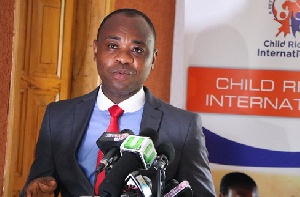The Ghana National Education Campaign Coalition (GNECC) has called for the establishment of a Free Education Secretariat to oversee the smooth implementation of the government's new Free Senior High School (SHS) Education Policy.
GNECC is a network of civil society organisations, professional groupings, educational or research institutions and other practitioners which promotes quality education.
Chairman of GNECC, Mr Bright Appiah, said the proposed Secretariat must have a Board to oversee its activities and to give it policy directions.
Speaking to the Ghana News Agency in Accra on Tuesday, Mr Appiah said the Free SHS Policy of government had come to stay and therefore, all stakeholders must get on board.
He said such a policy would go a long way to benefit the nation's children, and also to accelerate its socioeconomic development.
He urged the government to guarantee the regular and speedy disbursement of the Free SHS funds to ensure that the project did not face similar challenges that had saddled the Northern Scholar Fund over the years.
He said there was the need for the government to put in place a strong monitoring system to ensure that funds that were released to the various schools were judiciously used for the intended purposes.
Mr Appiah called on civil society organisations to play their part to ensure that the Free SHS succeeds.
The Free SHS Policy was on Tuesday launched by President Nana Addo Dankwa Akufo-Addo at the West Africa Senior High School, Adenta, Accra.
The Free SHS Policy is the flagship education programme of the government that seeks increase access to Secondary Education by removing the burden of paying fees from parents.
Under the policy, government would foot all bills including feeding fees, tuition fees and all other charges.
Over 420,000 eligible students would enjoy the programme when it kicks off.
The GNECC is a network of civil society organisations, professional associations, educational and research institutions, and others interested in promoting quality basic education for all.
Formed in 1999, the coalition has steadily grown over the years with a current membership of over 100 organizations.
The GNECC ascribes to the idea of education as a fundamental human right and the key to breaking the cycle of poverty.
General News of Wednesday, 13 September 2017
Source: ghananewsagency.org

















